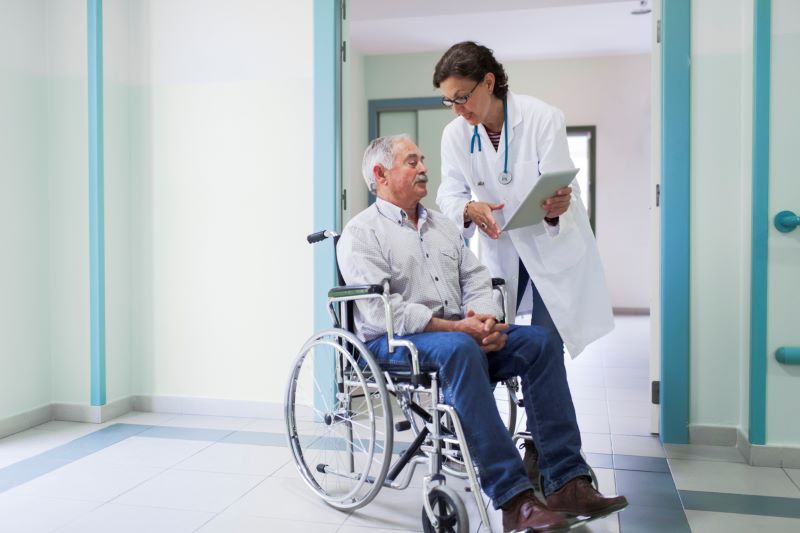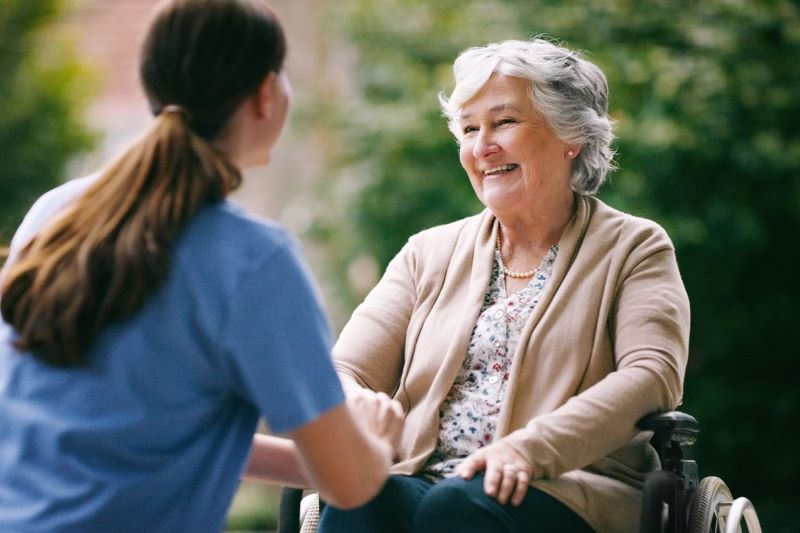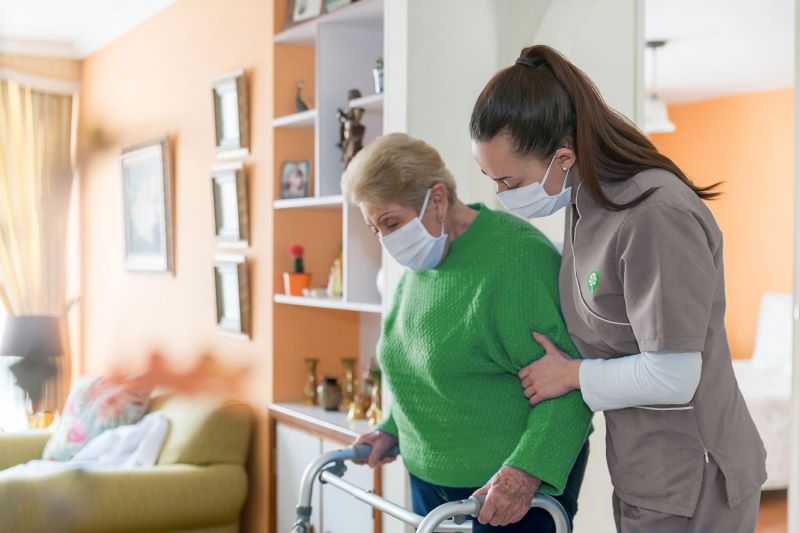After an illness, injury, or surgery, it can feel intimidating when leaving the hospital. How can you or a loved one continue to have a successful recovery outside a hospital setting?
Creating a discharge plan with professional medical advice and support can ease the transition for yourself or your loved one once the hospital stay is over. Whether the next stop is a skilled nursing care facility or home care, establishing a care team ahead of time that involves family, friends, licensed skilled nurses, or specialists provides the best chances of a speedy recovery.
Contact the caring professionals to learn more about post-hospital care at Haven Health.
Discharge Planning After a Hospital Stay
When the release papers are signed, feelings of relief and hope often accompany the anticipation of getting some aspects of everyday life back. But the end of a hospital stay may also mean leaving convenient care services even though recovery isn’t complete.
After discharge, having a care plan will help both the patient and the caregiver with a smooth transition by understanding what to expect and having the necessary resources in place.

What Is Discharge Planning?
Discharge planning1 is creating a plan for a patient as they move from one level of care to another, such as:
- Where the patient is being discharged to
- Who will provide care
- Medications
- Meal preparation and diet
- Extra equipment (bed, wheelchair, etc.)
- Length of care/likelihood of recovery
- Follow-up appointments
- What health insurance covers
- Level of post-acute care
- Phone numbers to call for help
Have questions about post-acute care after an illness or surgery? Contact our skilled nurses today.
Planning for the Hospital Discharge Process
Discharge plans to address after-hospital care shouldn’t be done alone. Nurses, hospital staff, social workers, case managers, or others can offer recommendations and help create a plan. It’s often necessary to involve more than one medical professional in the planning process, especially when dealing with complex cases.
1. Before Leaving the Hospital
Make transitions as smooth as possible before your loved one returns home by ensuring the location is accessible for the patient and that all needed medical equipment will be ready for them when they get there. This may include:
- Ramps – it may be necessary to check wheelchair accessibility or add a ramp for a more accessible entrance to a home location.
- Handrails – if a patient is unsteady on their feet, handrails are helpful by entryways, stairs, or bathrooms for extra support.
- Wheelchair or walker – if walking is difficult, plan to have a way to get around the house or out for errands.
- Medical needs – be aware of other medical necessities such as bandages, medications, or oxygen so you can focus on feeling better.
- Transportation – able to get to appointments or get groceries
2. At the New Location
Once you get to the new site, double-check that daily needs and nutrition are being met and make adjustments as necessary. This may include:
- Bathing – getting in and out of the shower and washing
- Dressing – clean clothes and the ability to get dressed
- Food – access to nutritious food and grocery stores
- Medical care – either from a care agency or a capable friend or family member
- Routine housekeeping – important if returning home
- Health – following through with rehabilitation, such as physical therapy or occupational therapy

3. After Settling In
It’s essential to follow all discharge instructions to prevent hospital readmission or delayed recovery. Factors that tend to hinder the healing process and raise the chance of readmittance include:
- Mental health/emotional issues
- Older age
- Deficient living conditions
- Level of support
- Multiple medications
- Inadequate insurance coverage
Hospital readmissions2 that occur in less than 30 days (or short-term readmissions) may require reassessing post-hospital needs. Readmittance after four weeks is often due to the severity of the patient’s condition.
Working with a medical team to create a post-hospital care plan is a critical element in the healing process for you or your loved ones. Changes to an initial discharge plan may be necessary, so it’s important to be flexible throughout the healing process.
Related: What is Post-Hospital Care?
Tips for Successful Transitions Out of the Hospital
Even with a plan in place, healing may not go as planned. Talking openly about concerns and needs throughout the process and being open to additional help as needed is crucial for you or your loved one to feel safe and reassured. Here are some things to remember throughout the discharge process:
- Open communication. Since post-hospital care usually involves more than one person, open communication is essential for the best chances of success. Talk openly with family members and caregivers to define roles and make sure everyone understands expectations
- Utilizing outside assistance. Part of the post-hospital transition should involve discussing outside specialists required for rehabilitation such as physical and occupational therapy, speech therapy, joint replacement care, complex wound care, or counseling. Many of these resources are readily available, so be sure to talk with medical staff before discharge to take advantage of these resources.
- Consider all care options. Maybe you’ve been discharged from the hospital but don’t have the resources to handle the level of care required. It might be a good idea to move to a skilled nursing facility where medical staff and resources are already in place to allow further healing before moving home.
Leaving the hospital often means the healing process has just begun. Hospitals are vital when dealing with acute care, but post-hospital healing is no less important. Take time to listen to medical professionals and consider what’s best for everyone involved, including skilled nursing facilities.

Need skilled care and support after being discharged from the hospital? Contact our caring professionals to learn how we can help.
Sources:
1Levine, Carol. Guide for Families and Caregivers. Family Caregiver Alliance. Retrieved 6 December 2021.
2McIlvennan, Colleen K., Eapen, Zubin J., Allen, Larry A. (19 May 2015). Hospital Readmissions Reductions Program. Circulation. Retrieved 6 December 2021.